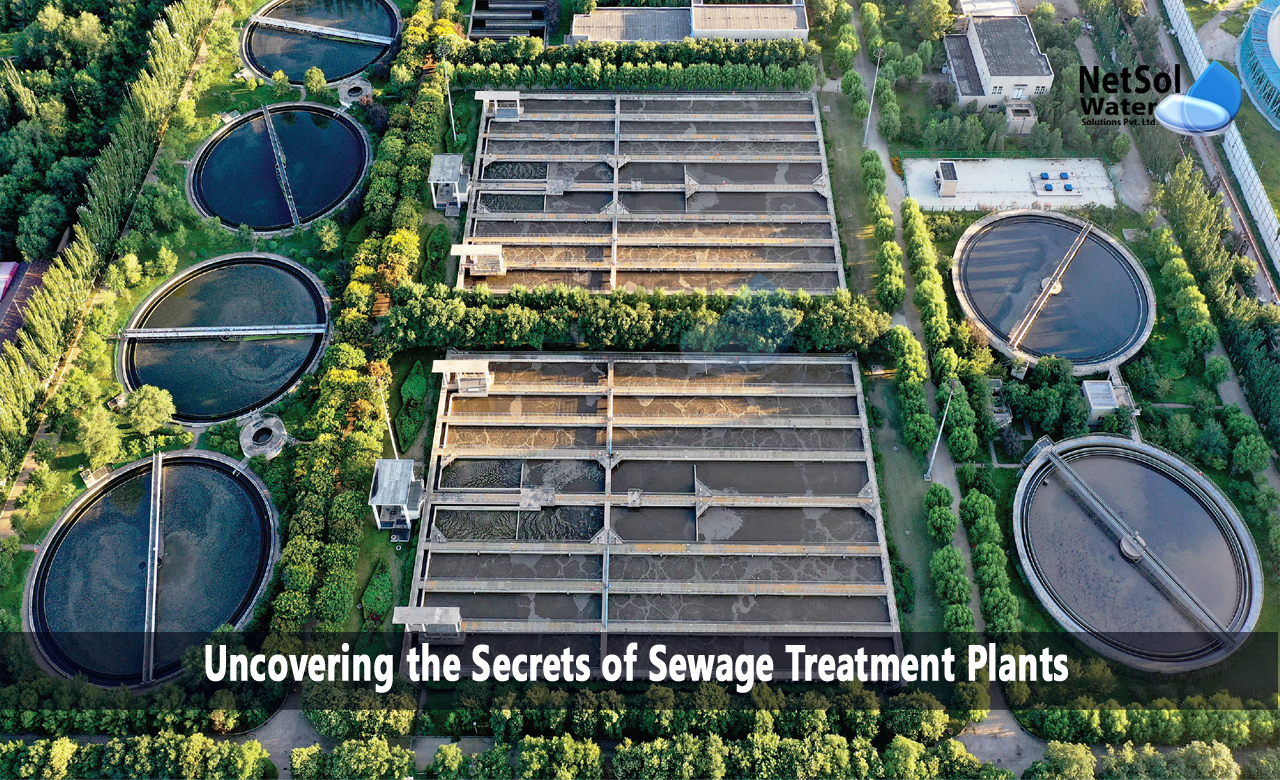What is the Secrets of Sewage Treatment Plants?
Sewage treatment plants are essential infrastructure that silently and efficiently work to protect public health and the environment. Despite their vital role, these facilities often remain hidden from public view, and many people are unaware of the intricate processes and remarkable technologies involved in treating and purifying wastewater.
In this blog post, we will delve deeper and uncover the secrets of sewage treatment plants, taking a closer look at their inner workings, the treatment processes employed, and the significant impact they have on our daily lives.
Understanding the Wastewater Treatment Process:
Sewage treatment plants are complex systems that employ a multi-stage process to treat and purify wastewater before it is released back into the environment. The primary treatment stage involves the physical removal of large objects, sedimentation of solids, and the separation of oil and grease. In the secondary treatment stage, biological processes are used to break down organic matter through the action of microorganisms. Lastly, the tertiary treatment stage includes advanced processes such as filtration, disinfection, and nutrient removal to further polish the treated water.
The Role of Microorganisms in Sewage Treatment:
Microorganisms play a crucial role in sewage treatment plants. In the secondary treatment stage, aerobic bacteria consume organic matter and convert it into carbon dioxide, water, and biomass. These microorganisms thrive in the activated sludge process, where they form flocs that settle and undergo further treatment. Additionally, anaerobic bacteria are employed in the treatment of sludge through anaerobic digestion, converting organic solids into biogas and producing nutrient-rich biosolids for potential reuse.
Advanced Technologies in Sewage Treatment:
Sewage treatment plants continuously adopt advanced technologies to improve treatment efficiency and reduce environmental impacts. Some notable innovations include the use of membrane bioreactors (MBRs) for enhanced solids separation and high-quality effluent production, ultraviolet (UV) disinfection systems to eliminate harmful microorganisms, and advanced filtration techniques such as reverse osmosis and advanced oxidation processes. These technologies contribute to higher treatment standards and promote resource recovery.
Resource Recovery and Sustainable Practices:
Sewage treatment plants are increasingly focused on resource recovery and sustainable practices. By extracting valuable resources from wastewater, these facilities contribute to the circular economy. For instance, the captured biogas produced during anaerobic digestion can be converted into renewable energy, reducing reliance on fossil fuels. Moreover, the biosolids obtained from the treatment process can be converted into fertilizers or used for soil improvement. Water reuse and recycling initiatives also contribute to conservation efforts and alleviate pressure on freshwater sources.
Environmental Benefits and Ecosystem Protection:
Sewage treatment plants play a vital role in environmental protection. By effectively removing harmful pollutants and pathogens from wastewater, these facilities safeguard aquatic ecosystems and protect water bodies from contamination. Treated effluent, when released responsibly, helps maintain the ecological balance of rivers, lakes, and oceans. Sewage treatment plants also contribute to reducing waterborne diseases, improving public health, and enhancing the overall quality of life in communities.
Ongoing Challenges and Future Innovations:
Sewage treatment plants face ongoing challenges, including aging infrastructure, increasing population, and emerging contaminants. However, these challenges also drive innovation and improvements in the industry. Future innovations may include the adoption of smart technologies for real-time monitoring and control, the integration of artificial intelligence for optimized operations, and the development of more sustainable treatment processes. These advancements will further enhance the effectiveness, efficiency, and environmental performance of sewage treatment plants.
Conclusion:
Uncovering the secrets of sewage treatment plants reveals the intricate processes and technologies involved in treating wastewater and safeguarding public health and the environment. These facilities are at the forefront of ensuring clean water, protecting ecosystems, and promoting sustainable practices. By appreciating the critical role of sewage treatment plants, we can better understand the importance of responsible water usage, proper waste disposal, and the collective effort required to build a cleaner and more sustainable future.
Netsol Water is Greater Noida-based leading water & wastewater treatment plant manufacturer. We are industry's most demanding company based on client review and work quality. We are known as best commercial RO plant manufacturers, industrial RO plant manufacturer, sewage treatment plant manufacturer, Water Softener Plant Manufacturers and effluent treatment plant manufacturers. Apart from this 24x7 customer support is our USP. Call on +91-9650608473, or write us at enquiry@netsolwater.com for any support, inquiry or product-purchase related query.



